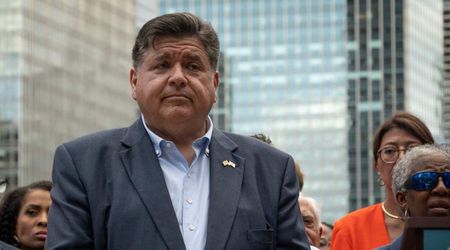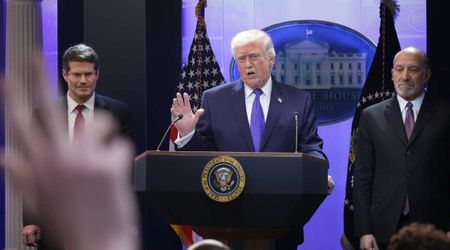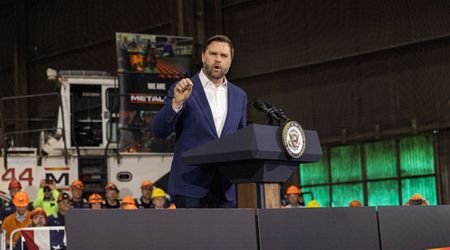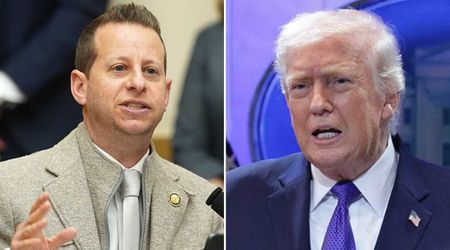Did Donald Trump violate the Constitution by launching airstrikes on Iran’s nuclear sites?

WASHINGTON, DC: Donald Trump took the world by storm on Saturday, June 21, when he ordered the US military to execute Operation Midnight Hammer, deploying more than 125 aircraft to destroy three of Iran's key nuclear sites.
The 79-year-old president’s decision has sparked backlash from both sides of the political spectrum, with many lawmakers claiming that he violated the Constitution by attacking without congressional authorization.
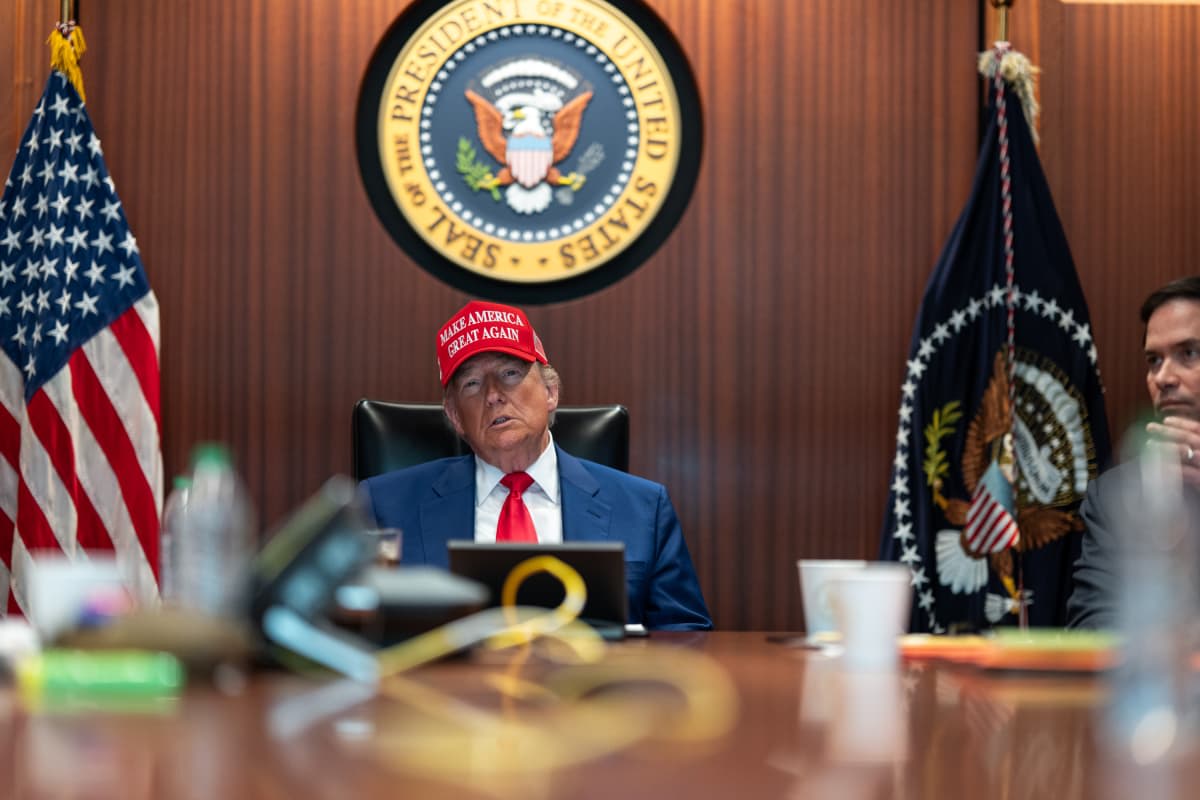
Republican Rep Thomas Massie of Kentucky stated on X (formerly Twitter) that the strikes were "not Constitutional." Meanwhile, Republican Rep Warren Davidson of Ohio wrote, "It's hard to conceive a rationale that's Constitutional."
However, House Speaker Mike Johnson (R- Louisiana) defended the president, saying he "evaluated that the imminent danger outweighed the time it would take for Congress to act."
He also noted that there is a "tradition of similar military actions under presidents of both parties."
Former senior US official weighs in on Donald Trump's Iran strike as it sparks debate on presidential war powers
Senior administration officials told CNN that the Trump administration executed the strikes based on the president’s authority under Article II of the Constitution.
“The president is clearly well within his Article II powers here. End of story,” one former senior US official told CNN.
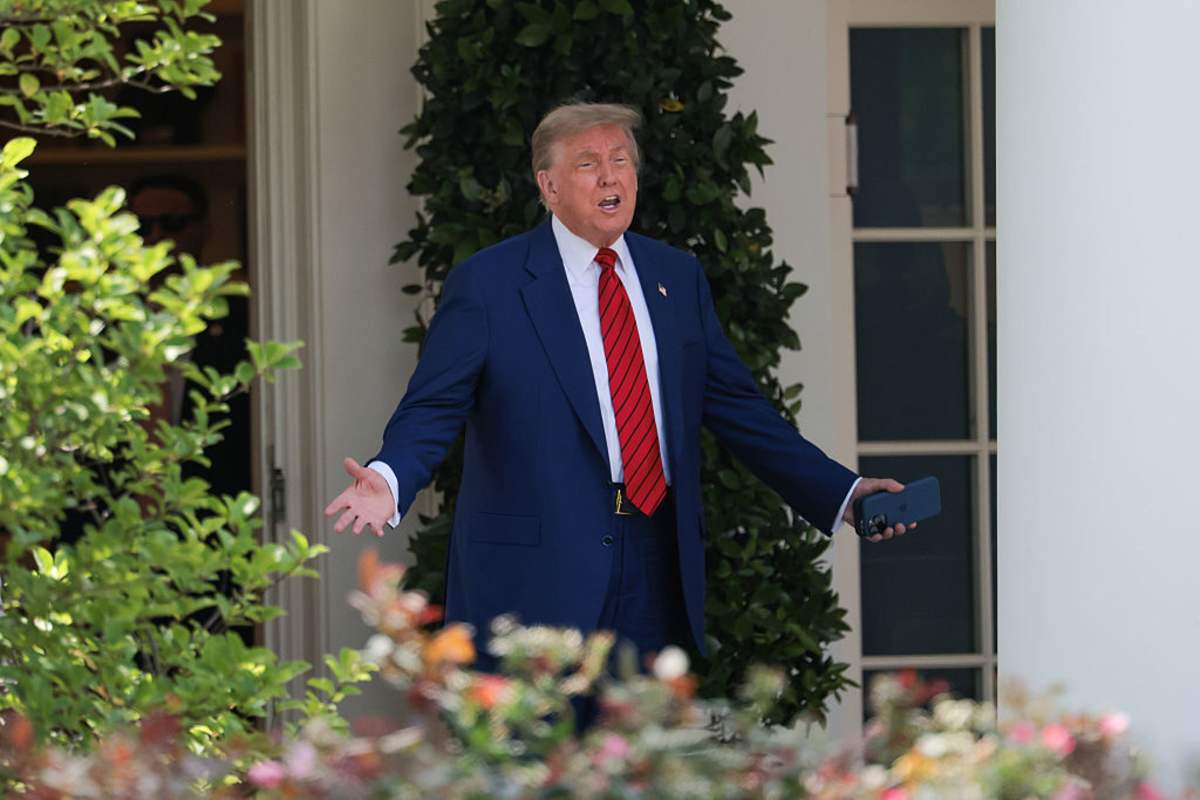
While Article I of the US Constitution grants Congress the power "to declare war," Article II states that the president, as commander-in-chief, has the authority to use military force under certain circumstances.
Although the Constitution doesn’t explicitly define those circumstances, they have been interpreted to include "actual or anticipated attacks" or actions taken to "advance other important national interests," according to experts at the Council on Foreign Relations.
Experts say Donald Trump’s strike may be legal, but extended action needs Congress' approval
Several constitutional experts told the BBC that Donald Trump had some authority under these circumstances to order the military strikes.
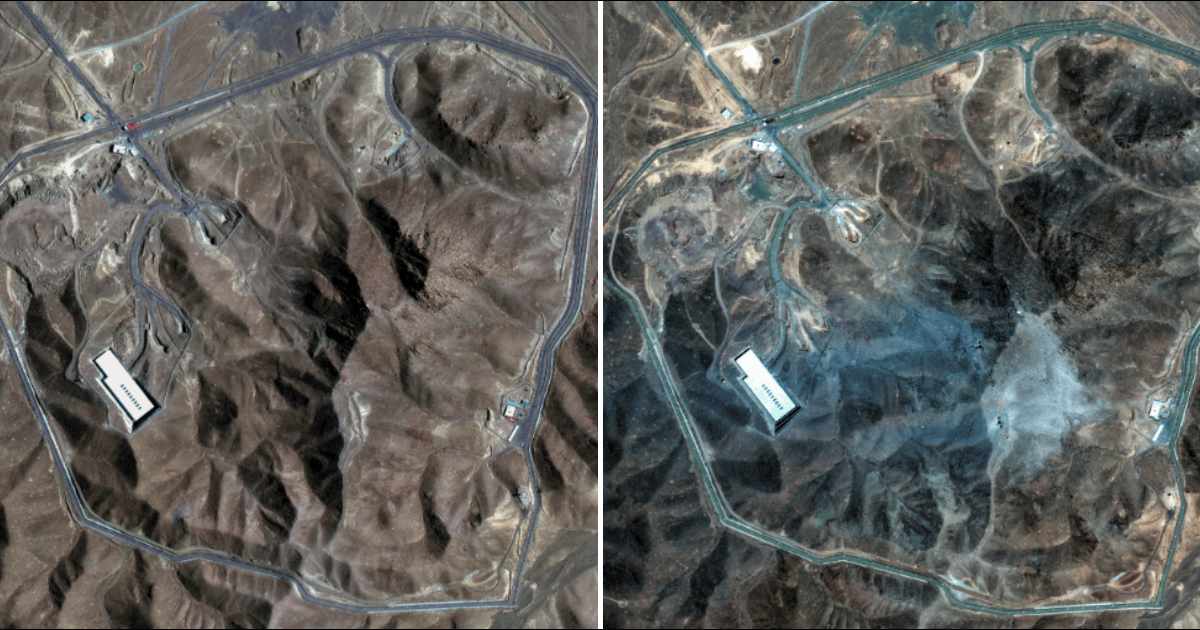
"The short answer is yes, he did have the authority here," said Claire Finkelstein, a law professor at the University of Pennsylvania. "There is a long-standing practice of presidents engaging in isolated military actions without congressional approval."
Jessica Levinson, a constitutional law expert at Loyola Marymount University, noted that the president has limited authority to authorize airstrikes, as long as the action "doesn't begin to resemble a war, and there is no clear definition of when that occurs."
Chris Anders, senior counsel at the American Civil Liberties Union, told CNN, “This isn’t some technical rulemaking,” before adding, “It literally is one of the enumerated powers” of the Constitution.
James Madison, in 'The Federalist Papers', argued that the president may use force to "repel a sudden attack on the United States" if necessary.
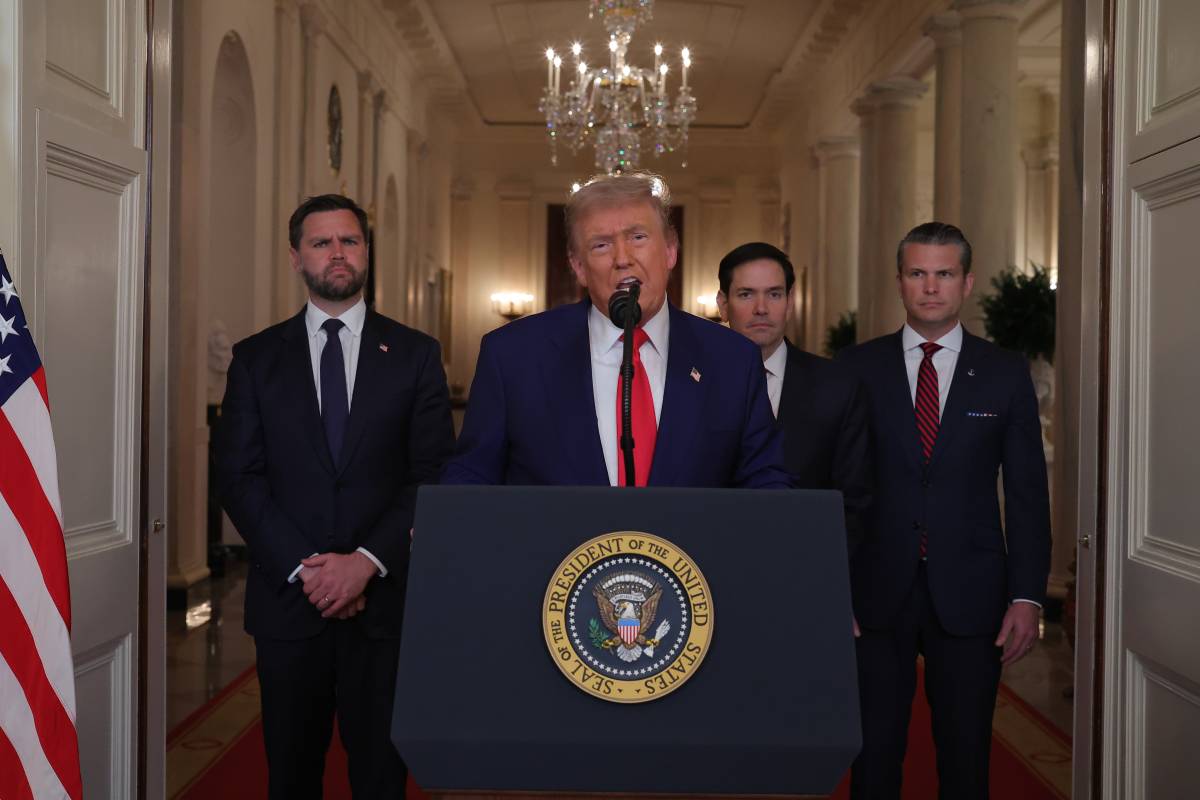
“If applied to Iran. The use of bombing runs against facilities that have been standing there for years, perhaps decades, and were not about to be part of a sudden attack on the United States,” Anders added.
A senior Justice Department official stated that “bombing three nuclear sites” does not require congressional consent, but if the conflict continues for an extended period, the administration may need to seek approval from Congress.
The official also noted that the Trump administration has the backing of senior House and Senate leaders.
Presidential history shows similar military actions without congressional approval
This is not the first time a US president has launched a military operation without Congress’s authorization.
Former president Barack Obama approved airstrikes in Libya without seeking congressional consent, with his administration justifying the move under Article II. The same rationale was applied to the 2011 mission to assassinate Osama Bin Laden in Pakistan.

During his first term, Trump also ordered the assassination of Iranian military commander Qasem Soleimani without congressional approval.
In the 1990s, former president Bill Clinton initiated strikes in the Balkans without securing prior authorization from Congress.
More recently, former president Joe Biden ordered strikes on Houthi targets in Syria and Yemen without first obtaining congressional consent.


